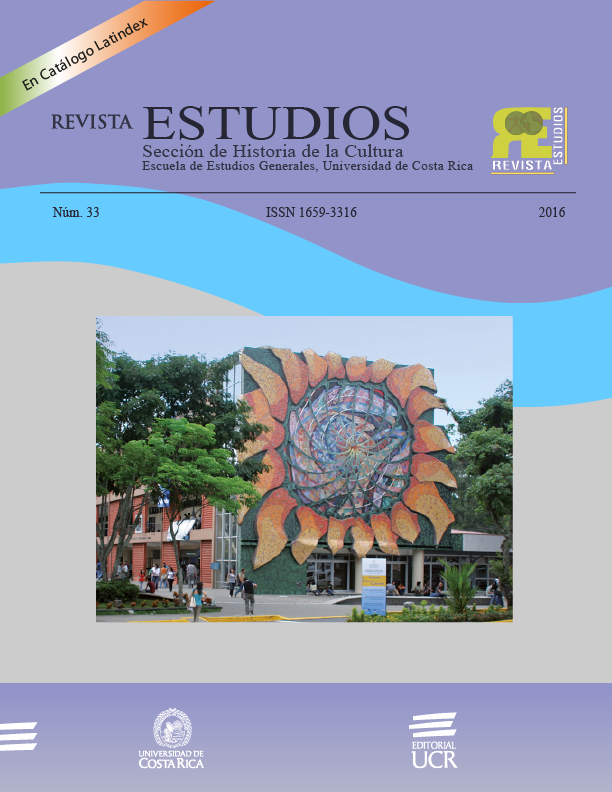Abstract
The government of the PRC has moved its concern to safeguard its oil security to its development policies. This is reflected in its foreign policy and the management of its diplomatic relations and strategic alliances. Even though, the insertion of the Chinese oil companies overseas is not the main oil supply line, it is a long-term strategy which involve joint cooperation and coordination between the Chinese government, the oil state companies, the receiver government, as well as its respective oil companies. Taking into consideration this scenario, the main objective of this investigation is answer the following questions: What is? When did it start? which are the implications? and which are the benefits that the PRCh obtains with the insertion of its oil companies overseas.
References
ALEXANDRA, Lina A., “The Role of Indonesia’s Civil Society in Energy Security” en Mely Caballero-Anthony, Youngho Chang, Nur Azha Putra (eds.), Rethinking Energy Security in Asia: A Non-Traditional View of Human Security, Springer, 2012.
ALVES, Ana Cristina, “Chinese Economic Statecraft: A Comparative Study of
China’s Oil-backed Loans in Angola and Brazil”, Journal of Current Chinese Affairs, vol. 1, núm. 42, 2013.
ANDREWS-SPEED, Philip, Energy Policy and Regulation in the People’s Republic of China, Kluwer Law, International, La Haya, 2003.
ANDREWS-SPEED, Philip, y Roland Dannreuther, China, Oil and Global Politics, Lóndres y Nueva York, Routledge, 2013.
ANDREWS-SPEED, Philip, Xuanli Liao, Roland Dannreuther, The Strategic
Implications of China’s Energy Needs, The International Institute for Strategic Studies, Oxford University Press, Nueva York, 2002.
HENGYUN, Ma Oxley, John Les & Gibson, “China’s Energy Situation in the New Millennium” Renewable and Sustainable Energy Reviews, vol.13, núm.8, 2009.
CARDOSO, Daniel, “China-Brazil: A Strategic Partnership in an Evolving World Order”, Jiexi Zhongguo, Análisis y Pensamiento Iberoamericano sobre China, núm.6, 2013.
CHEN, Shaofeng, “Motivations behind China’s Foreign Oil Quest: A Perspective from the Chinese Government and the Oil Companies” Journal of Chinese Political Science, vol. 13, núm. 1, 2008.
ISBELL, Paul, “Asia y el desafío de la seguridad energética”, Boletín Elcano, vol. 85, 2006.
CURTIS, Carl Robert Kooper (ed.), “Yacimientos de petróleo pesado”, OilField Review, 2003.
DOWNS, Erica, “China Development Bank’s oil loans, Pursuing policy and profit”, China Economic Quarterly, 2011.
ELLENNOR GRACE, M. Francisco, “Petroleum Politics: China and Its National Oil Companies”, tesis de maestría, Centro Internacional de Formación Europea, Instituto Europeo, 2013.
FENG, Lianyong, Yan Hu, Charles A.S. Hall y Jianliang Wang, The Chinese Oil Industry, History and Future, Springer, libro electrónico, 2013
GALLAGHER, Kevin P., Amos Irwin, Katherine Koleski, ¿Un mejor trato? Análisis comparativo de los préstamos chinos en América Latina, Cuaderno de trabajo del CECHIMEX, núm. 1, 2013.
HUSAR, Joer y Dannis Best, “Energy, Investments and Technology Transfer Across Emerging Economies, The Case of Brazil and China”, International Energy Agency, 2013.
LORO HORTA, S., Brazil-China Relations, Rajaratnam School of International Studies Sinpapore, RSIS Working Paper no. 287, 2015.
LÖSCHEL, Andreas, Ulf Moslener, Dirk T.G. Rübbelke, “Indicators of energy security in industrialised countries,” Energy Policy, Science Direct, núm.38, 2010.
RíOS, Xulio, “China and Venezuela: Ambitions and Complexities of an improving relationship” East Asia, vol.30, 2013.
SÁNCHEZ CÉSAR, Miriam Laura, El problema de la seguridad energética de la República Popular China: Implicaciones y debilidades, tesis de maestría, CEAA, Colegio de México, D.F., 2013.
SOVACOOL, Benjamin K., “Evaluating energy security in the Asia pacific: Towards a more comprehensive approach”, Energy Policy, vol. 39, 2011
TAYLOR, Monique, The Chinese State, Oil and Energy Security, Nueva York, Palgrave, macmillan, 2014.
YERGIN, Daniel, “Ensuring Energy Security”, Foreign Affairs, vol. 85, núm.2, (marzo-abril), 2006.
Documentos electrónicos
Agencia Internacional de Energía , International energy data and analysis
[www.eia.gov/countries/cab.cfm?fips=ch, consultado 10 enero 2015.]
Energy Supply Security: Emergency of IEA Countries 2014,
[www.iea.org/publications/freepublications/publication/ENERGYSUPPLYSECURITY2014.pdf, consultado 14 mayo 2014].
CNPC, proyectos. www.cnpc.com.cn/en/Venezuela/country_index.shtml, revisado el 29 de mayo de 2015.
Institute for Energy Research, China Overtakes U.S. as Largest Oil Import, [http://instituteforenergyresearch.org/analysis/china-overtakes-u-s-as-worldslargest-oil-importer/, consultado 22 de septiembre de 2015.]
La Asamblea Nacional De La República Bolivariana De Venezuela, www.asambleanacional.gov.ve/uploads/leyes/2012-0522/doc_965907ed8ad7a2605dbf252ac882905d6b11f773.pdf , consultado 25 de septiembre de 2015.
OPEC share of the World crude oil,, 2014. Organization of the Petroleum Exporting Countries, www.opec.org/opec_web/en/data_graphs/330.htm , consultado 26 de septiembre de 2015.
